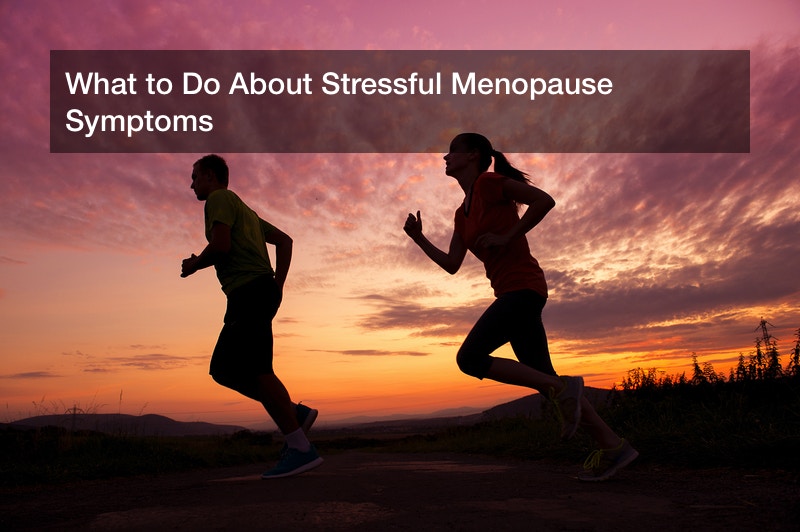
Men and women undergo a number of biological and mental changes as they get older, often in their 50s or early 60s or so. The first stages of menopause may arrive when a woman is in her late 40s through early 60s, as different women may undergo menopause at different times than each other. It is rare, though, for women to undergo menopause earlier than their 40s or later than their 60s. It may also be noted that menopause itself is really only a 24-hour change, and all of a woman’s lifetime after that is the post-menopausal phase of her life. At any rate, when the first stages of menopause begin, a woman may undergo changes in her hormone levels, her fertility, and even her mental process. It’s a transformation that may rival puberty in scope, and the first stages of menopause may prove unpleasant for many. However, modern medicine allows this transition to be made smoother and easier, and a local gynecologist may help a client find an anti aging clinic for anti aging therapy. In other cases, women’s health involves visiting fertility clinics to find infertility solutions.
On Menopause
Most women will experience menopause in their lives, and the first stages of menopause, on average, begin at age 51 for American women today. This is the mean age, but women may experience menopause much earlier or later than that in rare cases. In unusual cases, a woman may start the first stages of menopause as young as her late 30s, and sometimes as late as her 60s. Generally, however, women undergo menopause somewhere between ages 40 and 58, as statistics show. Nine in ten women go through perimenopause as well, a phase of altered menstrual cycles before menopause itself takes place. This perimenopause phase may last for four years or so. Women may not like this, however, as menopause involves a decrease in estrogen and oxytocin, and they may find themselves irritable, experiencing hot flashes, and have trouble sleeping, among other complications such as mood swings.
No one can prevent menopause from happening, but then again, many middle-aged women report satisfaction with hormone therapy treatment at clinics. This hormone replacement therapy will add hormones to the patient’s body in a carefully controlled manner, and this will bolster her naturally decreasing estrogen levels and minimize the effects of menopause. This procedure is often reported as being effective and quite safe, but women who undergo this should note that increased estrogen also boosts their risks of developing breast cancer. A woman who undergoes hormone therapy is strongly urged to visit clinics for regular mammogram work and imaging to stay on top of her health.
Fertility Solutions
A woman’s body, up until menopause, is fertile and many women want to have children. A woman is at her most fertile in her 20s, and this fertility starts to lower at a slow but accelerating rate in her 30s and 40s. Women who have undergone menopause know that it is extremely unlikely, if not impossible, to become pregnant. But if a woman younger than that has unexpected difficulty in conceiving a child, she may visit fertility clinics with her male partner to determine what the problem is. Both men and women may suffer from infertility issues, and some causes are common to both sexes.
Women may experience infertility if their ovaries fail to release an oocyte (egg cell), or if a fertilized egg (zygote) attaches itself to the fallopian tube rather than the uterine lining to form a placenta as it normally should. Women may also suffer lower fertility if they are chronically stressed, smoke a lot or abuse drugs. Men may suffer infertility due to drugs or tobacco use, or from trauma to their testicles or if the testicles are exposed to radiation. Some men have deformed sperm or a low sperm count.
Man-woman couples may visit these fertility clinics to get a diagnosis on the problem, and the solutions may range from pills to surgery on a woman’s fallopian tubes or ovaries all the way to in-vitro fertilization (IVF) or even involving a surrogate mother. A fertilized egg may implanted in a volunteer woman who will carry the child to term if the biological mother cannot for some reason or other.


